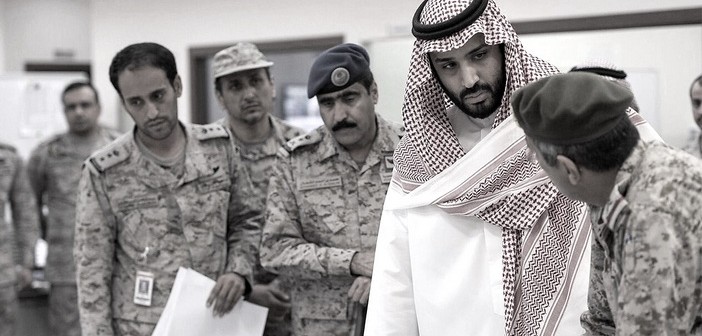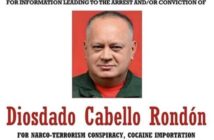The Saudi-led coalition military intervention in Yemen has set an unprecedented incident in Arab world politics. It has also marked a significant shift in Saudi policy toward Yemen, which has always preferred soft power and backed traditional influential players in the northern highlands. Yemenis reactions have been quite mixed so far, seriously reflecting the already existing divisions in the Yemeni political scene and society alike. It is also risking national unity and social peace as well as further exacerbating Yemen’s economic hardships.
Yemeni response
The Houthis who are declared target of the offensive are extremely raged and confused. While their only ally, ex-president Saleh, ostensibly seems quite upset and surprised, however, he voiced reconciliatory reaction. Regretfully, while this alliance has proved powerless against the Arab coalition war on Yemen, it has been fighting a wrong battle in the southern governorates. Houthi-Saleh’s war against southerners under the pretext of fighting Al-Qaeda and IS militants is seriously increasing Yemen’s losses in blood and treasures, even risking national unity.
Meanwhile, Houthis’ opponents have warmly welcomed the intervention. The Al-Islah Party, the largest religious oriented organization, expressed officially their support to the Saudi-led coalition military action. It was a partisan reaction motivated by a desire for vengeance that put the party in troubles for aligning with the external coalition. As a result the Houthis soon detained dozens of Al-Islah’ senior figures under the charge of treason.
Another religious group known to be Houthis’ challengers is the Al-Rashad Party, Wahabis seemed reluctant to voice their support openly, but they certainly privately celebrate it.
Southerners, pro-Hadi popular committees and Southern Movement members, greatly appreciate the intervention. The reason is simply that the coalition military operation came while southerners were desperately struggling to rebuff an incursion into their territories by the Houthi-Saleh alliance militants and troops. They have long been seeking for such regional intervention to enable theto gain a more autonomous authority or at least save the southerners from another invasion by northerners as it happened in 1994.
The secularist, left leaning and Pan-Arabist political forces reacted cautiously. They did neither condemn nor support publicly the intervention. Instead they blamed the Houthi-Saleh alliance, suggesting an end of the military operation and resuming the dialogue to find out solutions to the crisis.
The majority of Yemeni intelligentsia have openly and repeatedly condemned the aggression, however, they partially blamed Yemeni political leaders for failing to save their own homeland from such a devastating offensive. Yemen’s great poet and intellectual, Dr. Abdulaziz Al-Maqaleh, strongly denounced the war and rebuked Yemeni politicians. He wrote “Wars are always disasters, they should be condemned.” In his weekly column in the Al-Thawrah state-run daily, he added “We, Yemenis, have only ourselves to blame. If our political leaders acted responsibly and put Yemen’s interests above their own, they could save Yemen from this devastating damage.”
Houthis heavily dependence on brute force and arrogant acting against their political opponents. They have cornered modernizers and put all civil state advocators at the mercy of their bayonets. The very popular satirical columnist, Fiqri Qasim, penned a column titled A crazy man holds a stone, referring to the Houthi leader, Abdulmalik Al-Houthi.
Concerning the ordinary people, a significant portion of Yemenis appear apathetic, even though they are not happy to see their own homeland being bombarded by Saudi warplanes. “Why should we care about military capacities, when they have never been used to defend Yemen’s national interests. Our troops have turned out to be militiamen in uniforms only”, Aref Al-Wana, a Yemeni engineer, said.
Many Yemenis have been deeply frustrated by the long-standing political stalemate the country has been struggling with. Hopes created by the successful conclusion of the National Dialogue Conference (NDC) have been squashed by the Houthi takeover and Saleh’s return to the political stage as the only key player. Saleh announced provocatively the war against the south, conceitedly boasting the 1994 notorious war saying in a televised address to his supporters that in 1994, they the southerners had had four outlets to run away, but now, they have only one single exit: to flee to Djibouti.
Yahya Maqran, a political activist, argued that Yemenis were really in trouble, he said: We were caught between two crazy warlords: a young maniac striving for supremacy and an old freak lusting forpower, he referred to Abdulmalik Al-Houthi and the former president Saleh.
The sponsors of the political settlement in Yemen have come to realize that Saleh and Al-Houthi can only understand the language of brute force. When asked why they did not solve Yemen crisis through dialogue, the Saudi Foreign Minister, Saud al-Faisal replied: “This is a form of dialogue”, meaning the airstrikes operation.
Things really have come to a pretty-pass. The UN Secretary General Ban Ki Moon made an urgent appeal to save Yemen: “The country is collapsing before our eyes and we cannot stand by and watch.”
Some Yemeni analysts and observers defend the military coalition intervention, suggesting that it was necessary to bring the political transition process back to the right path after the armed militias had taken over power. “The Saudi-led coalition intervention was necessary after the state’s sovereignty fell into the hands of armed militias”, said Abdulsalam Mohammed, the head of Sana’a-based ‘Aba’ad Think Tank’.
In an interview with the Yemen Times newspaper, Mohammed argued that the majority of Yemenis, for the first time, support an external intervention to combat the militants who had taken over their state.
Yemeni’s Concerns
The last thing Yemen was in need of is such barbaric aggression. If history would be any guide, wars can only worsen already bad situations, they rarely help to mitigate them. Dr. Salaw Damaj, an associate Professor of politics at Sana’a University told me: “The worst-case scenario Yemenis are deeply concerned about is: protracted external war ended up in sectarian conflict and civil war.” She is rightly worried about the serious implications of the military operation in Yemen. “Yemeni people cannot afford the consequences of the military operations. The social and economic effects will be unbearable”, said Dr. Damaj, the Residential General Director of the American Institute for Yemeni Studies in Sana’a.
The Houthi-Saleh led war in the south under the pretext of combating Al-Qaeda militants has further increased the gap between southerners and northerners. It also has provided Al-Qaeda a heaven-sent opportunity to easily recruit thousands of young people. The terrorist groups also can capitalize on the Houthis’ incursion into the southern regions to fuel Zaid-Sunni sectarian war; besides that the domestic armed conflict also redoubled the victims and damages.
The bad news is that the Saudi media discourse has been promoting a sectarian mode, while Yemeni media is either powerless or totally absent at the moment. The bloody Friday suicide attacks against Sana’a mosques last month, the brutally way in which soldiers of northern governorates were slaughtered are foreboding signs. Such hideous crimes were deliberately planned to trigger a sectarian conflict.
Looming Starvation
Yemen’s long-standing political crisis erupted in 2011 and has caused crippling damages to Yemen’s national economy. The poverty and unemployment rates are alarming. The country’s poor infrastructure of basic services such as water, electricity and transportation were seriously damaged prior the Decisive Storm. That means Yemenis suffering will be redoubled.
The UN agency reports about food insecurity in Yemen were alarming. Now, nation-wide starvation is looming. The humanitarian situation is catastrophic already before this war. Hundreds of thousands of Yemenis have now been displaced by the repeated rounds of violence in the country. The IDP numbers are increasingly redoubled by the airstrikes operation.
Saudis shift support to Yemen
The good news is that the Saudi-led military intervention has come in response to an appeal by president Hadi, whose presidency is disputed by the Houthis and Saleh, but strongly supported by the bulk of the Yemeni people. The former Prime Minister, Dr. Abdulkareem Al-Iryani, the leading modernizer, showed up behind president Hadi as he addressed the Arab League Summit in Egypt the day after the airstrikes operations was launched. His appearance sent a clear message that he is in favour of the operation.
Dr. Al-Iryani has not been pro Saudi policy in Yemen, rather the opposite is true. He was also severely and unfairly criticized by religious scholars and their supporters. This is a very significant sign. This time Saudi policy may support the Yemeni politicians who seek to build a civil modern state. As current power struggle is between two blocs: pro- democracy and modernization, led by Hadi and advocated by al-Iryani, and the other bloc: pro-autocracy and theocracy led by Saleh and Al-Houthi. Unfortunately, the first camp turned out powerless against the second one.
Yet, Many Yemenis are skeptical aboutthe Saudi leadership’s true intention. Everybody knows that Saudis are primarily concerned with their national interests. So one can argue that Saudis’ sincere supportto such policy in Yemen is only wishful thinking. Every Yemeni is fully aware that Saudi Arabia is largely blamed for problems Yemen has been surrounded by. Religious extremism is a Saudi trademark. It was the Saudi pro-Wahabism policy, which has radicalized Yemen. While Al-Qaeda, which Yemen has been plagued by, is a by-product of Saudi pro-Jihad policy in Afghanistan.
However, some Saudi pundits have spoken out openly that Saudi support to Yemen in the past used to go to individuals pockets instead of the peoples interests.
The Saudi-led military intervention has provided a good occasion to Saudi leaders to reflect on the kingdom’s policy toward Yemen. Indeed, it has obviously proved short-sighted and counterproductive. “The Decisive Storm” may be helpful, if it produces genuine change in the Saudi Arabian policy toward her southern neighbor. To this end, the kingdom’s leadership needs to forget about King Abdulazi’s recommendation: “keep Yemen weak” and act on the Malaysian genius leader Dr. Mahathir Mohammed’s counsel “If you want to live in peace, make your neighbor rich”.




